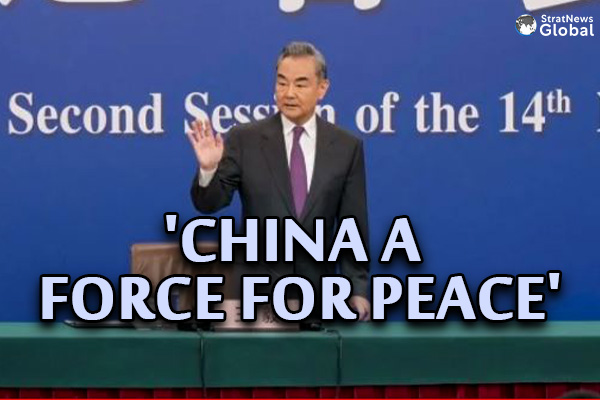China’s Foreign Minister Wang Yi on Thursday asserted that “If there is conflict or confrontation between two major countries like the US and China, the consequences will be unimaginable.”
In a rare hour and half long press conference during the annual “Two Sessions” meeting of the National People’s Congress, Wang insisted that China was ‘a force for peace’, warned against any interference over Taiwan, defended Beijing’s growing ties with Moscow and reiterated his country’s position on the wars in Ukraine and Gaza.
Wang, who was reappointed foreign minister in July after his predecessor Qin Gang was suddenly axed without warning, did not take any questions about Qin. Nor did he make any specific references to India and Japan, two of its largest neighbours, preferring instead to focus on relations with other developing nations.
Responding to questions on the US-China relationship, Wang said that although relations did improve after President Xi Jinping met his American counterpart Joe Biden in California last year, misperceptions about China’s intentions still exist in Washington.
“The US has been devising various tactics to suppress China. If it says one thing and does another, where is its credibility as a major country? If it gets jittery whenever it hears the word China, where is its confidence as a major country?” he asked.
Beijing would not allow a few big countries to monopolise the world, he said, when asked about US Secretary of State Anthony Blinken’s remark at a security conference in Munich that “if you’re not at the table in the international system, you’re going to be on the menu”, in an obvious reference to China.
On Taiwan, he said Beijing was striving for peaceful reunification, and anyone who endorsed or supported Taiwanese independence will “get burned for playing with fire”.
He also warned against any foreign interference in the South China Sea, most of which China claims as its own, despite protests from the smaller nations in the region. Differences over disputed waters should be resolved through dialogue and negotiations between claimant states, he said.
Ties with Moscow were moving forward on a “high-level” amidst deepening trust, he said, but underlined that the relationship was “not targeted at any party”.
Insisting that China had an impartial position on the Ukraine crisis, he recommended a peace conference involving both Moscow and Kyiv. “The earlier the talks start, the sooner peace will come,” he said.
He also suggested a credible peace conference to end the conflict in Gaza, and reiterated China’s support for an immediate ceasefire and a two-state solution.
Also See:
In a career spanning three decades and counting, Ramananda (Ram to his friends) has been the foreign editor of The Telegraph, Outlook Magazine and the New Indian Express. He helped set up rediff.com’s editorial operations in San Jose and New York, helmed sify.com, and was the founder editor of India.com.
His work has featured in national and international publications like the Al Jazeera Centre for Studies, Global Times and Ashahi Shimbun. But his one constant over all these years, he says, has been the attempt to understand rising India’s place in the world.
He can rustle up a mean salad, his oil-less pepper chicken is to die for, and all it takes is some beer and rhythm and blues to rock his soul.
Talk to him about foreign and strategic affairs, media, South Asia, China, and of course India.





